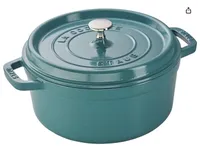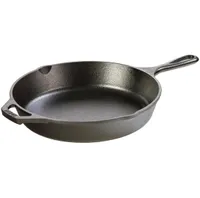Is it OK to cook tomato sauce in cast iron? I asked pro chefs, and they all said the same thing
They had some caveats
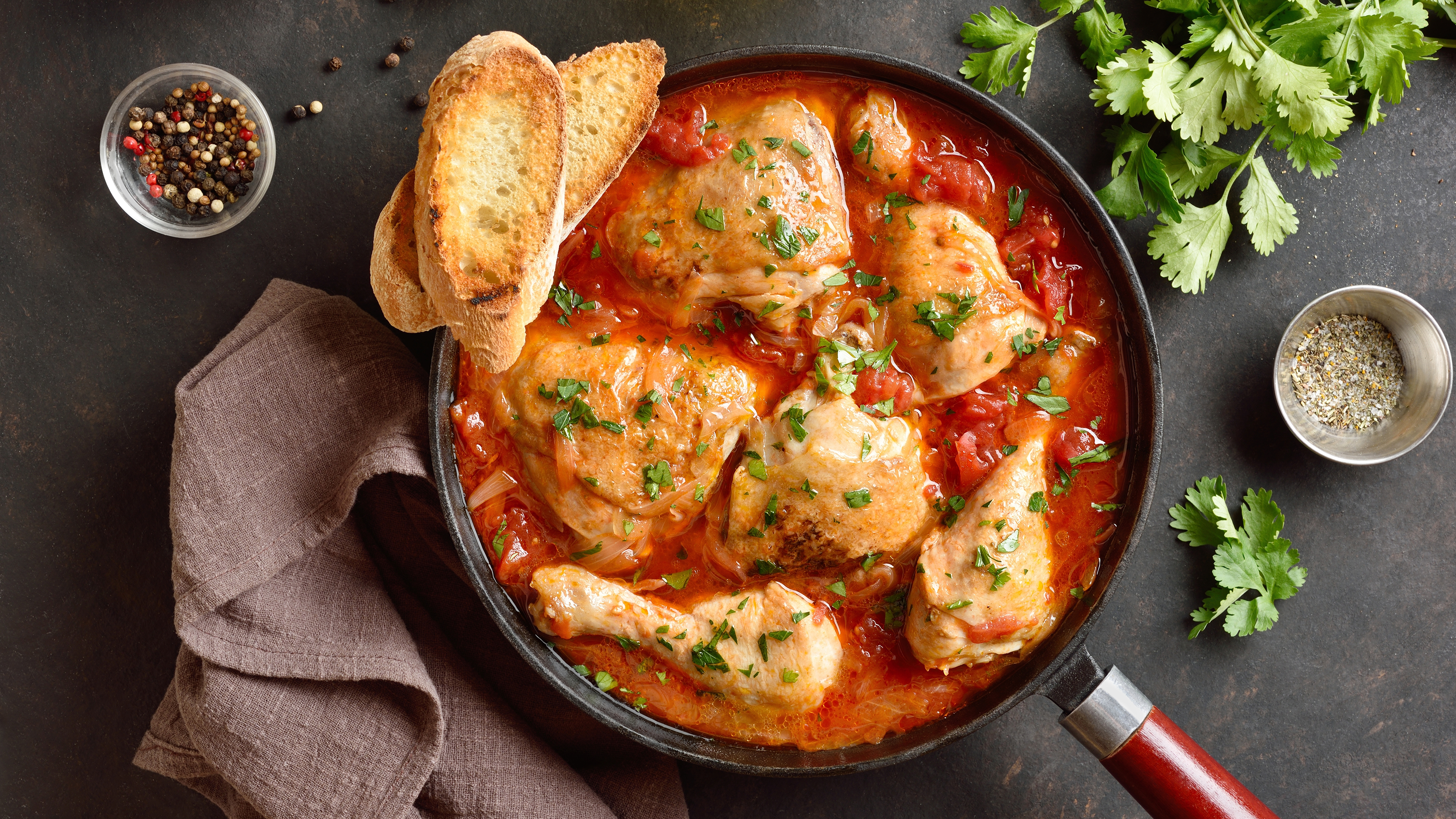
Recently, I’ve been on a cast iron kick. It helps that I get to test some of the best cast iron skillets as part of my job, but there’s something about this charming, classic cookware that makes me reach for it over my Teflon-coated pots and pans.
But recently, I’ve come across some debate online as to whether it’s ok to cook tomato-based sauces in cast iron. Could this damage your pans, and why?
I reached out to Laura Ascher, Recipe Developer at Cast Iron Skillet Cooking, and Hank Shaw, James Beard Award–winning chef and author of the new cookbook Borderlands, to get to the bottom of the debate. Is it ok to cook tomato sauces in cast iron?
“Yes, with a few caveats,” says Shaw. Long story short, I can keep cooking tomato pastas and hot curries in my cast iron pots, but there are some things I need to know before I do.
Why do people advise against cooking tomato sauces in cast iron?
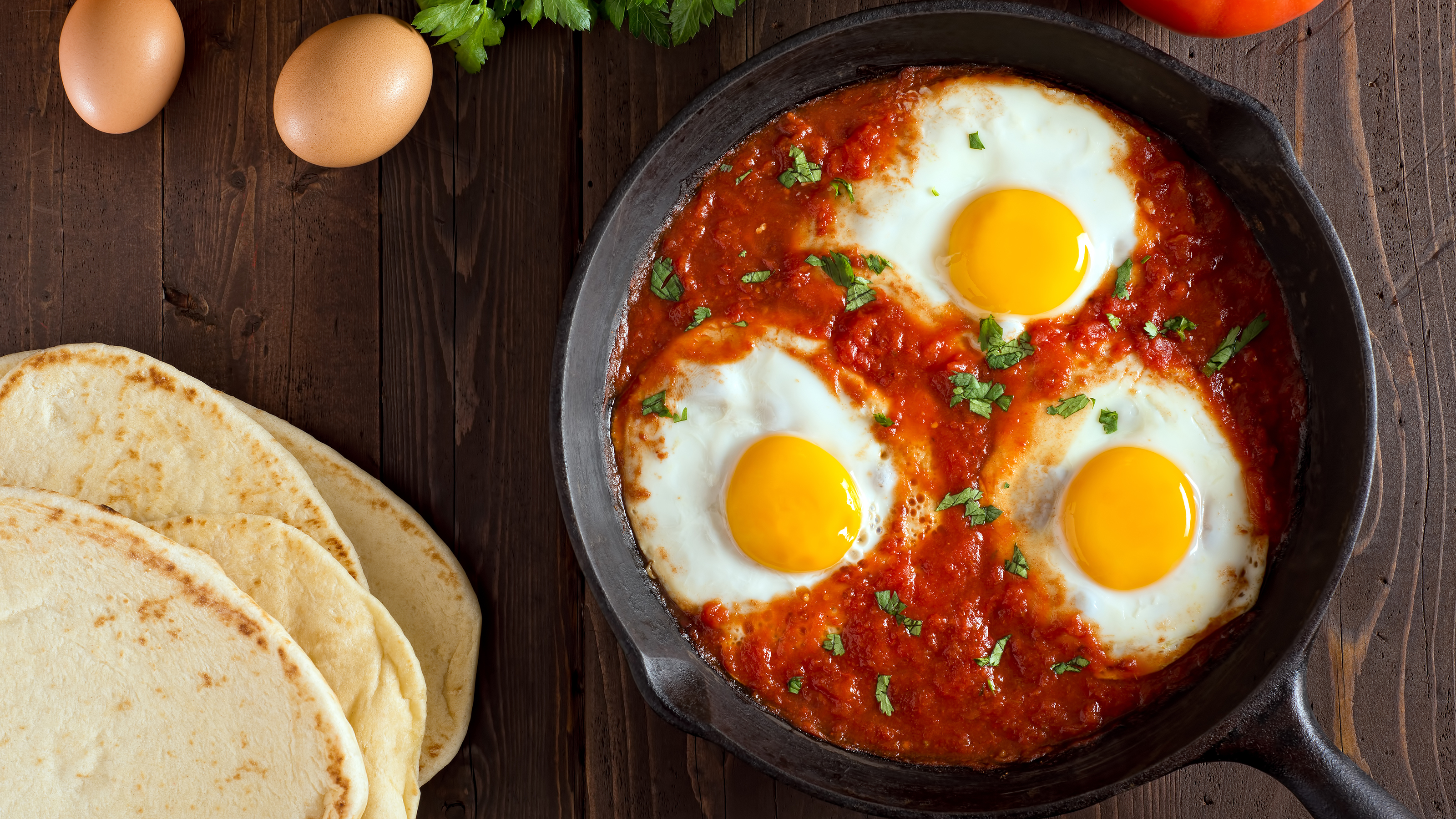
“Technically speaking, cooking acidic foods can wear down the seasoning over time”
Laura Ascher, Recipe Developer at Cast Iron Skillet Cooking
You should note that this warning only applies to bare cast iron. "With enameled cast iron, acidic foods can be cooked to perfection with no risk of damaging the coating," Paul Bough, a Chef at STAUB, told me. "The enamel protects the iron from reacting with the food."
People warn that the high acidity levels of tomato sauce can damage bare cast iron’s seasoning in the long run. If you’ve ever spent the time to develop that precious layer of seasoning on a cast iron skillet, you’ll know how devastating it can be when it’s ruined. So it’s no surprise that people err on the side of caution when it comes to highly acidic foods.
I use Staub's enameled cast iron cocotte to cook larger sauces and stews for long periods of time. If you plan on cooking a tomato-based dish low and slow, opting for an enameled alternative could be a smart switch given the damage tomato sauces can cause when left in contact with cast iron.
“Technically speaking, cooking acidic foods can wear down the seasoning over time,” confirms Ascher, “but it really depends on several factors such as how long you’re cooking those foods, how long they stay in the skillet, and whether you’re storing them in it”
Get instant access to breaking news, the hottest reviews, great deals and helpful tips.
Don’t break out the nonstick just yet
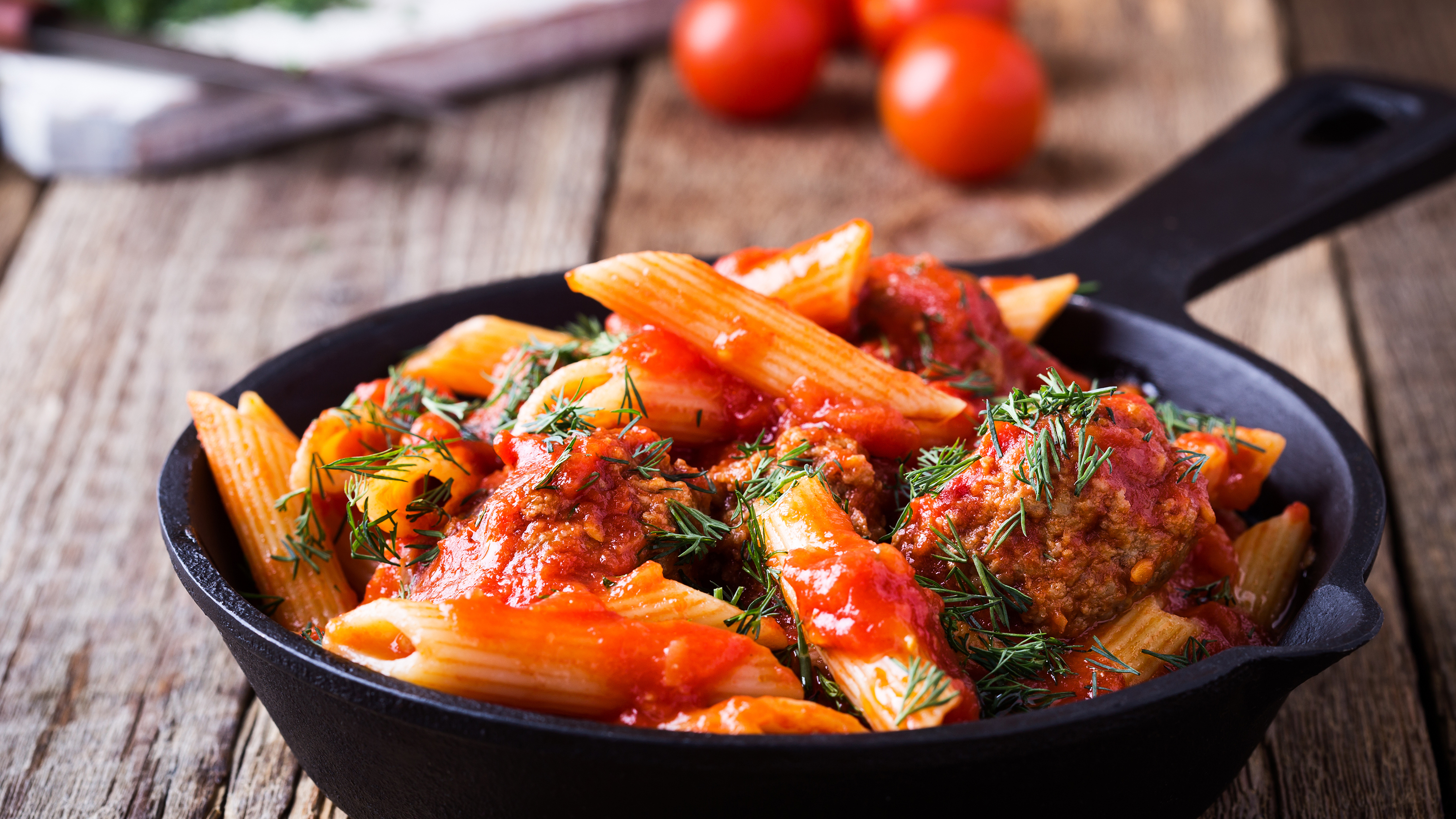
While there are some things to be wary of when using cast iron to cook acidic foods, Ascher advises that it’s fine to do on occasion.
“In most cases, it’s perfectly fine to cook acidic foods in cast iron,” she says. "As long as your skillet is well-seasoned with a nice, thick, smooth layer of polymerized oil baked into the surface, you won’t have any issues.”
However, if you cook a lot of tomato curries or have a penchant for vodka pasta, you should plan your routine accordingly. “In my experience, the occasional recipe, like tomato sauce, isn’t going to make a noticeable difference or cause you to re-season more often,” Ascher told me, “but if you’re cooking acidic foods every day, you’ll probably find yourself re-seasoning your skillet a bit more frequently.”
Lodge is a classic cast iron brand for a reason. This skillet gets the balance right between affordability and quality.
How to cook acidic foods in cast iron
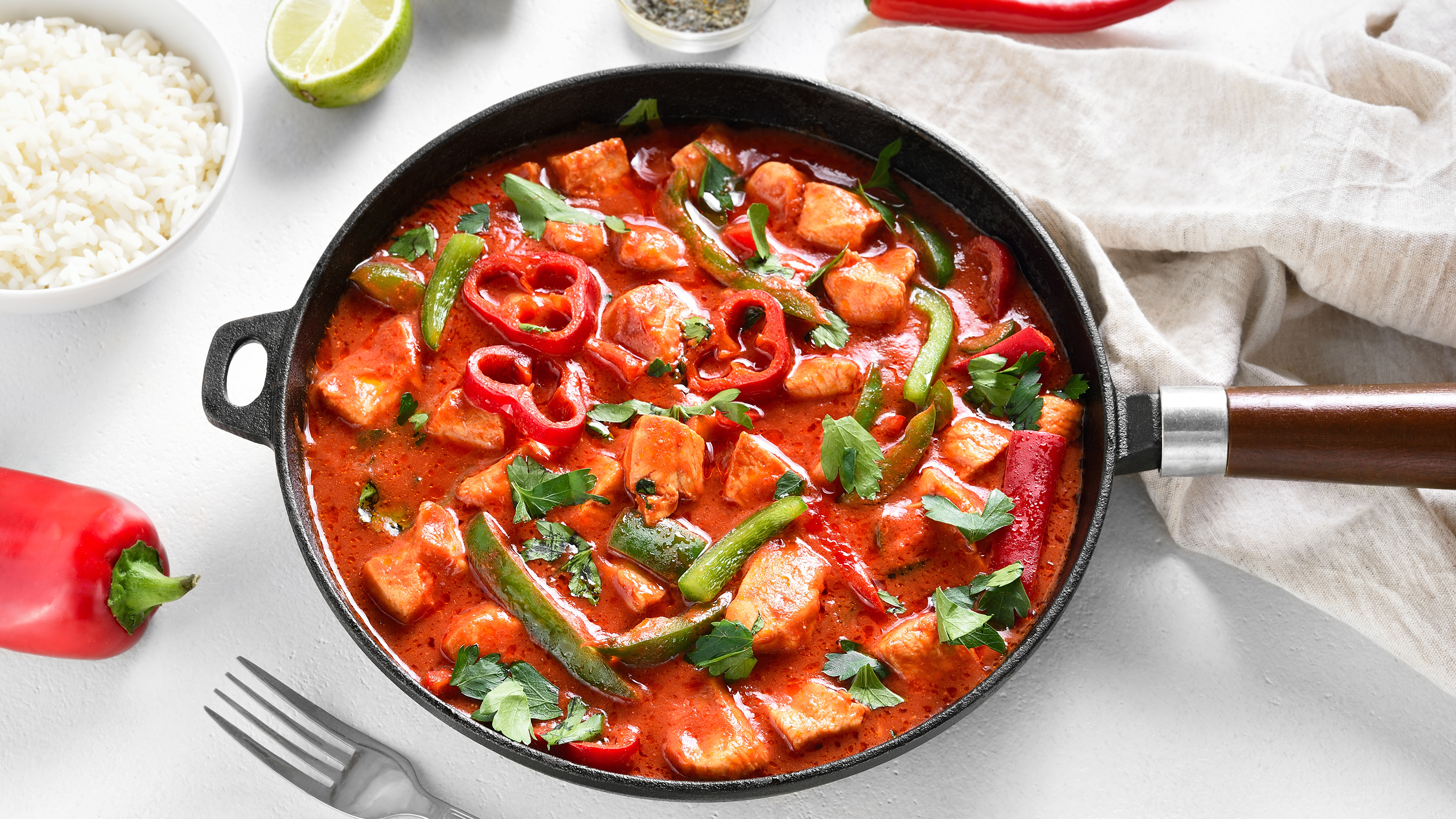
"Leaving acidic foods in the pan can cause a slight metallic taste"
Laura Ascher, Recipe Developer at Cast Iron Skillet Cooking
The trick to cooking tomato and other acidic sauces in cast iron is to restrict how long they spend in your pan.
“You don’t want to simmer say, a tomato sauce, in cast iron for hours”, says chef Hank Shaw. “That will give the sauce a bit of an iron-y flavor, which isn’t pleasant.
Laura Ascher of Cast Iron Skillet Cooking concurs. “Never store sauce or any acidic food in your skillet. Leaving acidic foods in the pan can cause a slight metallic taste and dull the finish, prematurely wearing down the seasoning.”
There are two ways around this issue: the first is to mainly use your cast iron to reheat sauces, as opposed to simmering tomato sauces for hours at a time. "You can reheat something acidic in cast iron, and make acidic pan sauces with one," says Shaw. “Just be sure to not let that acidity stay in the pan longer than it needs to.”
According to Ascher, the real no-no is storing acidic foods in cast iron. “It’s perfectly fine to cook acidic foods in cast iron from time to time, just avoid storing them in it,” she says. “Instead, transfer leftovers to a glass container for storage.”
Follow Tom's Guide on Google News and add us as a preferred source to get our up-to-date news, analysis, and reviews in your feeds. Make sure to click the Follow button!
More from Tom's Guide

Millie is the Managing Editor of Homes at Tom's Guide. She's been reviewing home tech for over five years, testing everything from coffee makers to the latest vacuum cleaners.
With particular expertise in cookware and kitchen appliances, you'll struggle to find an air fryer Millie hasn't tested. She's traveled the world reporting on the latest home innovations and product launches, learning how to use pizza ovens from Pizzaiolos in Naples, and touring the De'Longhi factory in Venice. Millie is also an SCA-Certified barista.
When she's not reporting on home and appliance trends, Millie loves watching live music. She's currently learning the guitar - naturally, she plays a Fender.
You must confirm your public display name before commenting
Please logout and then login again, you will then be prompted to enter your display name.
 Club Benefits
Club Benefits





